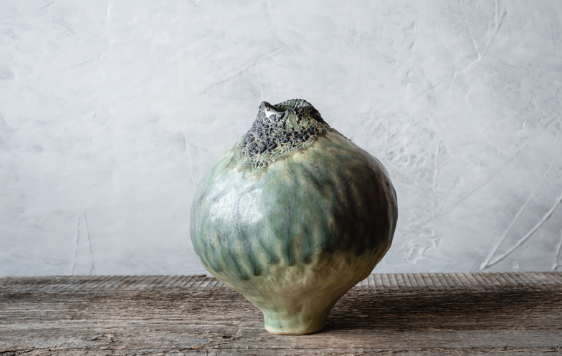In a world obsessed with perfection, polished aesthetics, and the relentless pursuit of the new, there exists a Japanese philosophy that offers a radical alternative: Wabi Sabi. This ancient concept, far from rejecting reality, embraces it wholeheartedly, finding beauty in the impermanent, the flawed, and the incomplete.
Imagine a cracked ceramic bowl, its surface etched with the passage of time, its imperfections forming a unique map of its history. Or picture a moss-covered stone garden, where nature reclaims its space, creating a serene space of quiet contemplation. These are just glimpses into the world of wabi sabi, where imperfection is not a flaw, but a source of profound beauty and wisdom.

The Two Pillars of Wabi Sabi:
The term is a fusion of two distinct concepts: "Wabi" refers to simplicity, humility, and living in tune with nature, while "Sabi" conveys the beauty that comes with the passage of time – a beauty that emerges as things weather and age.
-
Imperfection as Beauty: Wabi Sabi encourages us to find beauty in the imperfect. Whether it's a crack in a ceramic bowl or the weathered surface of an old wooden table, imperfections tell a story and add character. Rather than seeking flawlessness, Wabi Sabi invites us to appreciate the uniqueness that comes with imperfection.
-
Embracing Transience: In a world that values longevity and permanence, Wabi Sabi encourages us to acknowledge and accept the transient nature of life. Seasons change, flowers bloom and wither, and nothing lasts forever. Instead of mourning this impermanence, Wabi Sabi suggests finding beauty in the fleeting moments, appreciating the ephemerality of all things.
-
Simplicity and Humility: Wabi Sabi values simplicity, both in material possessions and in the way we approach life. It encourages us to pare down the unnecessary and find joy in the unadorned. This simplicity fosters a sense of humility, recognizing the small, quiet moments that often go unnoticed in our fast-paced lives.
-
Connection to Nature: Central to Wabi Sabi is a deep connection to nature. This philosophy suggests that by aligning ourselves with the natural world, we can find tranquility and a greater sense of purpose. Natural materials, such as wood and stone, are often celebrated for their inherent imperfections and the way they evolve over time.
Wabi Sabi in Everyday Life:
The principles of Wabi Sabi extend far beyond aesthetics. They offer a way of living, a lens through which we can approach life with greater acceptance and serenity. Here are a few ways to incorporate Wabi Sabi into your daily life:
- Slow down and appreciate the simple things: Take a moment to savor the taste of your tea, the feel of sunlight on your skin, the sound of rain on your window.
- Find beauty in imperfections: Don't let a chipped mug or a scratch on your furniture diminish their value. Embrace their unique character and the stories they tell.
- Let go of the need for perfection: Perfection is an illusion. Embrace the natural flow of life, with its ups and downs, its beginnings and endings.
- Practice gratitude: Be grateful for what you have, even the impermanent things. Every moment, every experience, is a precious gift.
Wabi Sabi is not just an aesthetic; it's a way of being. It is a reminder that true beauty lies not in the flawless and the polished, but in the authentic and the real. It is an invitation to slow down, appreciate the simple things, and find peace in the impermanence of life. So, the next time you see a crack in a teacup, a wrinkle on your face, or a fallen leaf, don't look away. See the beauty in the imperfection, the wisdom in the transience, and embrace the Wabi Sabi spirit of life.
Remember, Wabi Sabi is not about achieving a certain look or style. It's about cultivating a mindset, a way of approaching life with open eyes and an open heart.
We hope this blog post has given you a glimpse into the captivating world of Wabi Sabi. May it inspire you to find beauty in the unexpected, embrace the impermanence of life, and create your own unique path to serenity.



